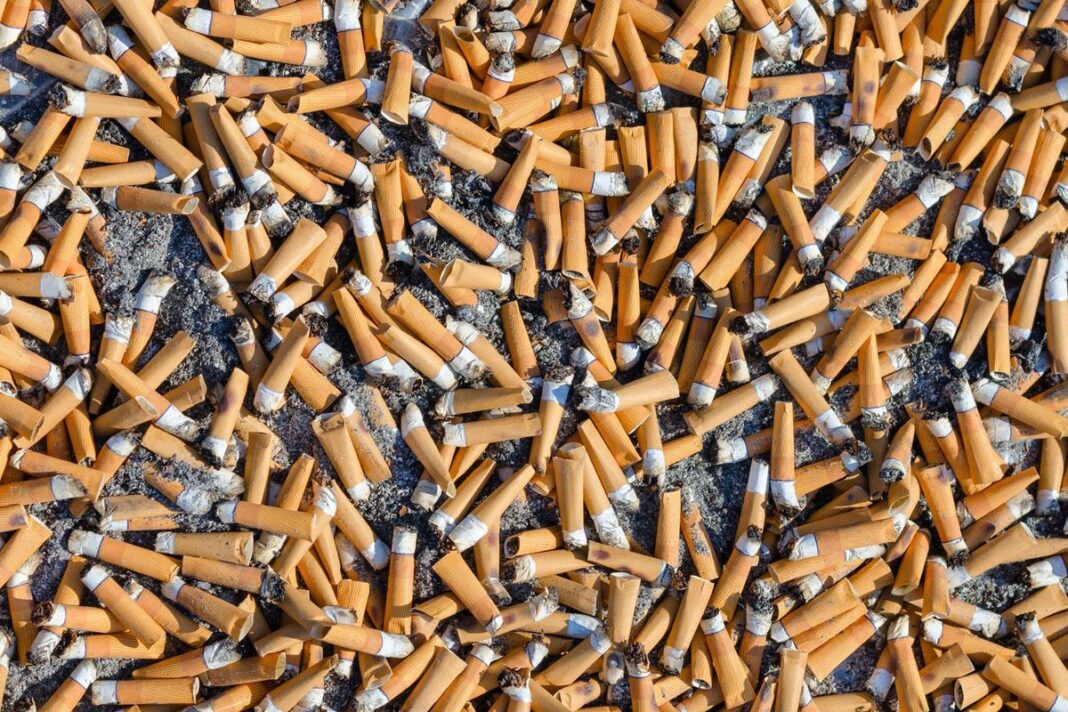In the 1950s, smoking was a cool thing. Public places and even offices permitted smoking. Fast forward 10 years, reports started coming in which linked smoking to cancer.
Cigarette manufacturers, not wanting to lose out on the billion-dollar industry, became more diligent in marketing their products as safe. Cigarette filters were marketed under the guise of addressing health concerns by providing a false impression of safety. These filters, made of a material called cellulose acetate, don’t actually reduce health risks and can even harm the lungs.
The cellulose acetate fibers have been shown to deposit into the lungs of smokers. As per a published recently, lead analyst Deborah Sy estimated that about $25. 7 billion is lost annually in waste management and damage to marine ecosystems due to cigarette plastic sources.
Sy’s team adjusted the losses for inflation over a 10-year period and found that $186 billion have been incurred in losses by the governments around the world. Single-use plastics increasingly common “Although this amount is small compared with the annual economic losses from tobacco (US$1. 4 trillion per year) and may appear insignificant compared with the 8 million deaths attributable to tobacco each year, these environmental costs should not be downplayed as these are accumulating and are preventable,” said Sy.
Made of single-use plastic, cigarette butts account for one of the most littered items globally. Not only do they harm humans but also animals and the environment. To appear environmentally friendly, the tobacco industry has joined anti-littering campaigns, but these efforts don’t solve the problem.
Sy noted in the study that even though nations across the globe are making progress in developing plastics policies, particularly banning single-use ones, the costs of tobacco’s plastic pollution are overlooked. Countries bring in stringent policies Countries like passed a law banning smoking for anyone born after 2008. They want to reduce the number of smokers in the country to five percent by 2025 and eventually eliminate the practice.
In , apart from warning labels on cigarette packaging, companies compulsorily have to print warning messages on each individual cigarette. Sy’s team relied on publicly available data on cigarette sales, clean-up costs, and plastic waste on land and sea, like the World Bank, the Organization for Economic Cooperation and Development (OECD), the Tobacco Atlas, and the World Wildlife Fund. In its concluding argument, the study holds the tobacco industry (TI) accountable for continuing to market “the most hazardous consumer product in the world, along with such a toxic product feature.
” The study also recommends that TI shouldn’t be included in intergovernmental engagements such as the plastics treaty due to its history of human rights violations. “The TI knew filters were a design flaw in that their use has been linked to a specific type of aggressive lung cancer, in addition to other cancer and cardiovascular risks caused by smoking tobacco… This rogue industry is not a ‘stakeholder’ in efforts to improve human health or environmental safety,” said the researchers in the study. The study titled ‘Tobacco industry accountability for marine pollution: country and global estimates’ was published in the journal .
Background Commercial cigarette filters are single- use plastics and the main component of cigarette butts, the most common trash item collected worldwide. Governments bear the economic burden of managing the waste and the environmental pollution due to discarded filters and packages. Using available data sources, we estimate the economic burden of plastic tobacco waste on country economic groups.
Methods We reviewed available public data sources that could inform estimates of the economic environmental burden of butt waste for countries. We estimated total weight of plastic cigarette filters and packaging based on cigarette consumption and applied World Bank waste management cost estimates per ton to this total. We then applied estimates of ecosystem losses per ton of plastic waste provided by the World Wildlife Fund to establish losses attributable to tobacco’s plastics.
Results We estimate that US$25. 7 billion is lost annually (waste management and marine ecosystem service losses) due to cigarette plastic sources. We estimate US$186 billion in such losses over a 10-year period, adjusted for inflation.
Countries are making progress in developing plastics policies, particularly banning single-use ones, but the costs of tobacco’s plastic pollution are overlooked. Conclusion Efforts to reduce plastic pollution should address cigarette filters as toxic, widespread and preventable sources of marine pollution. Countries may develop specific estimates of waste management and ecosystem costs in order to assign tobacco industry accountability for this pollution.
These results indicate minimum estimates for a majority of countries. .
From: interestingengineering
URL: https://interestingengineering.com/science/pollution-cigarette-butts



